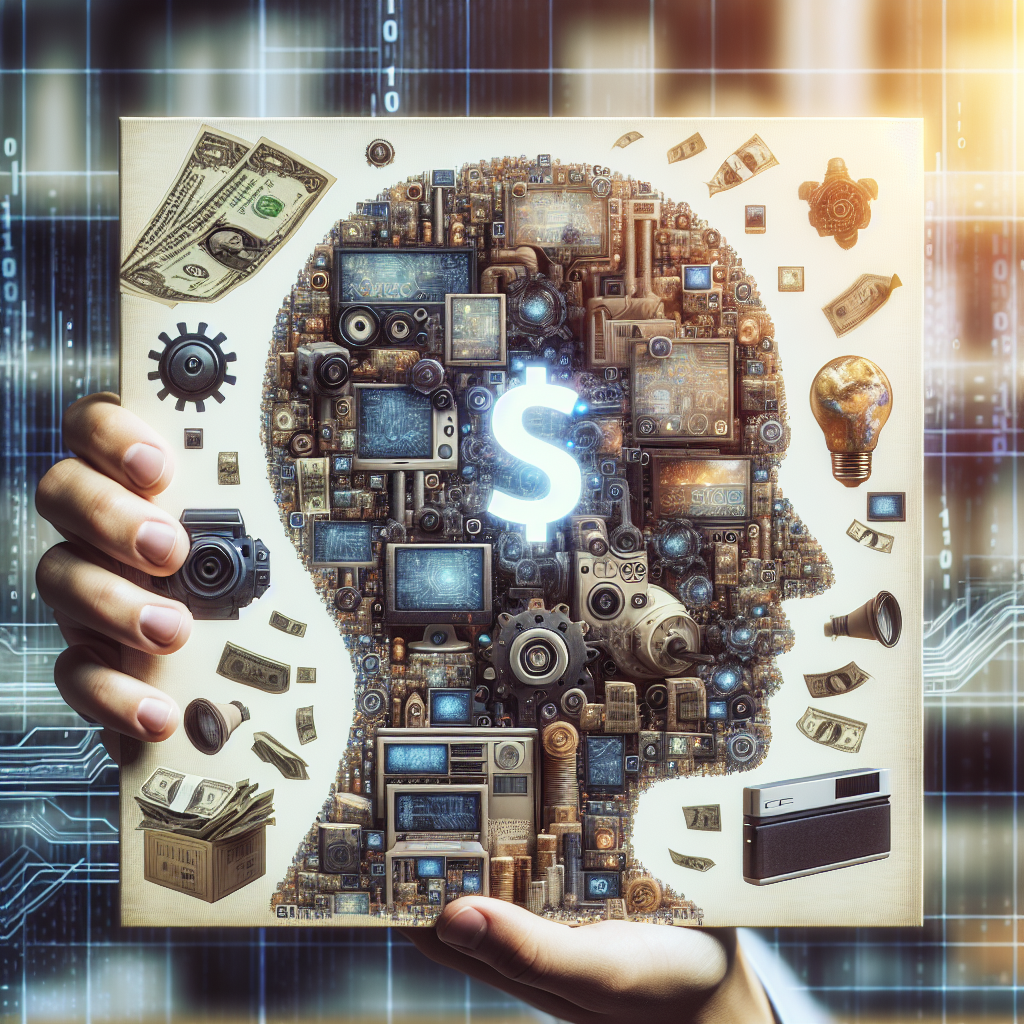Introduction to AI in Education and Content Creation
Hello reader! Have you ever wondered how AI can revolutionize the educational landscape or content creation fields? Stay with me, as we are going to explore this fascinating topic together.
Ever noticed how AI is seeping into different sectors, becoming an integral part in shaping the future? Education and content creation are no exceptions. In this article, we will examine what artificial intelligence brings to these fields, its potential benefits, challenges, and the practical implications.
We’ll cover some of the best AI tools for education, how these tools are transforming learning experiences, and how they can overcome accessibility issues. We’ll also touch on AI’s role in content creation, the leading tools for this, and how they influence the sales domain.
Whether it’s about improving classroom teaching, generating adaptive learning materials, creating attention-grabbing blog posts, or revolutionizing sales strategies – AI seems to have an answer. Ready to discover these insights? Let’s get started!
What is AI for Generating Educational Content?
Defining AI in Education
AI, or Artificial Intelligence, refers to the simulation of human intelligence in machines.
In the context of education, AI can generate personalized learning materials, enhance teaching methods, and automate administrative tasks.
It encompasses machine learning, natural language processing, and data analysis.
Benefits of AI in Educational Content
AI offers several advantages in creating educational content:
- Personalization: Tailors learning materials to individual needs.
- Efficiency: Automates repetitive tasks, saving time.
- Accessibility: Makes content available to a global audience.
- Improved Learning Outcomes: Enhances student engagement and understanding.
Popular AI Tools for Education
Numerous AI tools are designed specifically for the education sector. Some worth noting include:
- Google Classroom: Uses AI to simplify classroom management.
- Duolingo: Employs AI algorithms to personalize language learning.
- Coursera: Uses AI to recommend courses and track progress.
Challenges in Implementing AI
While AI has promising benefits, it comes with challenges:
- Cost: Initial setup and maintenance can be expensive.
- Data Privacy: Ensuring the security of personal data.
- Teacher Training: Educators need to be trained to use AI tools effectively.
Practical Applications
Here are some practical ways AI can be used to generate educational content:
- Tutoring Systems: AI-driven tutors that provide instant feedback.
- Content Creation: Automated generation of quizzes, assignments, and study guides.
- Interactive Learning: AI-based chatbots that facilitate student interaction.
Choosing the Right AI Solutions
When selecting AI tools for educational content, consider the following:
| Criteria | Description |
|---|---|
| Usability | Easy to use for both educators and students. |
| Scalability | Ability to handle growing amounts of content and users. |
| Support | Availability of technical support and training materials. |
For more information on AI in education, you can explore detailed resources from Edutopia.
Advanced AI Tools That Excel in Educational Content
Revolutionizing Learning with Artificial Intelligence
While AI’s role in education has been steadily moving from support to lead, both in and out of classrooms, the push toward AI-fueled teaching, assessment, and learning tools has accelerated due to increased global edtech demand.
Advanced AI Tools for Education
Some of the leading AI-powered tools which are reshaping education include:
- Quizlet: This studying tool uses machine learning algorithms to personalize study sessions.
- Sphero: A robot that teaches kids coding, made interesting via AI.
- Content Technologies Inc: Offers AI-based products that automatically generate learning materials.
Factors That Make AI Tools Best For Education
The rising trend in AI-powered educational tools rests on several key pillars:
- Interactive Learning Environment: AI tools make learning interactive, fun, and easy to understand. They engage students through games, quizzes, and simulations.
- Tracking Progress: These tools can track a student’s progress in real-time, creating reports for teachers and parents.
- 24/7 Learning Support: AI can offer constant support, allowing students to continue learning outside of school hours.
Potential of AI in Expanding Educational Accessibility
The Power of AI in Bridging Learning Gaps
Artificial intelligence also holds the promise of supporting the universal access to education. This is particularly beneficial for learners who are differently-abled or reside in remote areas where quality education may not be as accessible.
Specific AI Approaches in Enhancing Accessibility
AI strategies that serve the purpose of enhancing edtech accessibility include:
- Translation Services: AI can translate content into different languages, making education accessible to non-native speakers.
- Speech Recognition: AI-tools like Google’s Voice Typing and Apple’s Siri make digital interfaces more accessible to students with differing abilities.
- Customized Learning: By adapting to a learner’s unique needs and pace, AI can address the educational requirements of a wide range of students.
Evaluation of AI’s Role in Expanding Accessibility
When evaluating an AI-tool’s capacity to enhance accessibility, the following aspects should be considered:
| Key Factors | Details |
|---|---|
| Personalization Capabilities | Must adapt to the unique needs and pacing of each learner. |
| Language Coverage | Should support translations to various languages for global accessibility. |
| Inclusive Design | Needs to be user-friendly for those with differing physical and cognitive abilities. |
For an in-depth exploration of how AI is transforming education, consider visiting the website of the International Society for Technology in Education (ISTE).
Best AI Tools for Content Creation
Introduction to AI Content Creation
AI helps generate high-quality, engaging content with ease. Leveraging technologies like natural language processing (NLP) and machine learning (ML), AI tools can create various types of content, from blog posts to social media updates.
Top AI Tools for Content Creation
Each tool has its strengths and is suited for different needs. Below are some popular AI tools in content creation:
- Jasper (formerly Jarvis): Known for creating high-quality blog posts and marketing copy.
- Copy.ai: Specializes in generating advertising content and product descriptions.
- Grammarly: Enhances writing by checking grammar, style, and tone.
- Phrasee: Focuses on developing engaging email subject lines and social media content.
Features That Make These AI Tools Effective
These tools offer various features that enhance their efficiency and output quality:
- Natural Language Processing: Uses advanced NLP to understand context and generate human-like text.
- Templates: Pre-formulated templates tailored for different content types.
- SEO Optimization: Many tools include features to enhance your content’s search engine visibility.
- Multilingual Capabilities: Generate content in multiple languages to target a global audience.
Factors for Selecting the Right AI Tool
When choosing an AI tool for content creation, consider the following criteria:
| Criteria | Description |
|---|---|
| User-Friendliness | Ease of use and intuitive interface. |
| Content Quality | Ability to produce engaging, coherent, and high-quality content. |
| Integration | Compatibility with other tools and platforms you use. |
| Cost | Affordability and value for money. |
Case Study: Jasper in Action
One popular AI tool, Jasper, offers various capabilities which make it a favored choice among marketers and content creators. It uses NLP to create content that closely resembles human writing. An example of Jasper’s impact can be seen in a case study where a marketing team increased their blog output by 50% while maintaining high engagement metrics.
For more detailed information, you can explore [Jasper’s capabilities](https://www.jasper.ai/).
Future of AI in Content Creation
Innovations on the Horizon
The field of AI in content creation is rapidly evolving. Emerging technologies promise to change how we generate and consume content.
Next-Gen AI Features
Look out for these innovations:
- Enhanced Emotional Intelligence: Algorithms designed to understand and incorporate emotional tone and sentiment.
- Voice and Video Generation: AI that can create not just written content but also audio and video materials.
- Real-Time Collaboration: Tools that allow for real-time co-authoring and editing.
Evaluating Future Trends
To make the most of future AI tools, keep an eye on:
| Trend | Impact |
|---|---|
| AI Storytelling | Machines that can craft compelling narratives, enhancing engagement. |
| Contextual Understanding | Better context understanding leading to more relevant content creation. |
| Visual Design Integration | Fusion of AI-generated text with visual components for comprehensive content solutions. |
Best AI Tools for Sales
Introduction to AI in Sales
AI in sales helps streamline processes, enhance customer interactions, and boost revenue through intelligent data analysis and automation. By leveraging tools that incorporate machine learning (ML) and natural language processing (NLP), sales teams can make more informed decisions and personalize customer experiences.
Top AI Sales Tools
Here are some noteworthy AI tools designed to elevate your sales strategy:
- Salesforce Einstein: Integrates with Salesforce CRM to provide predictive analytics, personalized recommendations, and automated workflows.
- HubSpot Sales Hub: Uses AI to help sales teams manage leads, track interactions, and automate follow-ups.
- Gong.io: Analyzes sales conversations to extract insights and improve sales techniques.
- Conversica: Employs AI-powered assistants to engage with leads and facilitate follow-up communication.
Features That Make These AI Tools Effective
Several key features contribute to the effectiveness of these AI tools in sales:
- Predictive Analytics: Tools like Salesforce Einstein predict sales outcomes, helping teams prioritize leads and opportunities.
- Automation: Automating repetitive tasks such as follow-up emails and meeting scheduling, freeing up time for strategic activities.
- Real-Time Insights: Analyzes interactions and provides actionable insights to optimize sales strategies.
- Personalization: Customizes communication and product recommendations based on customer behavior and preferences.
Factors for Selecting the Right AI Sales Tool
Consider these criteria when choosing an AI tool for sales:
| Criteria | Description |
|---|---|
| Integration | Ability to integrate with existing CRM and marketing tools. |
| Ease of Use | Intuitive interface that allows for easy adoption by the sales team. |
| ROI | Tool’s cost-effectiveness in terms of improving sales performance. |
| Customization | Flexibility to tailor the tool according to specific industry needs. |
Real-World Application: Gong.io Case Study
Gong.io, an AI-powered sales conversation analysis tool, demonstrated notable success in a case study. A sales organization using Gong.io observed a 20% increase in deal closures by leveraging the insights provided by the tool. It analyzed salesperson-customer conversations to identify winning strategies and areas for improvement.
For further insights into the impact of Gong.io, you can check [Gong.io’s official site](https://www.gong.io/).
Future of AI in Sales
Upcoming Innovations in Sales AI
The future of AI in sales holds many promising advancements, leveraging technologies to provide even more sophisticated solutions.
Next-Gen AI Features
Look out for these cutting-edge features in future AI sales tools:
- Advanced Sentiment Analysis: Enhanced algorithms that better understand customer emotions and sentiment, allowing for more empathetic and effective interactions.
- Voice and Video Analysis: Tools that analyze voice and video calls to provide deeper insights into customer behaviors and preferences.
- Adaptive Learning: AI that continuously learns from interactions to improve its recommendations and actions over time.
Evaluating Future Trends
To stay ahead with AI tools in sales, consider these emerging trends:
| Trend | Impact |
|---|---|
| AI-driven Hyper-Personalization | AI tools will enable even more tailored customer experiences, improving satisfaction and loyalty. |
| Conversational AI | Platforms that enable more natural and intuitive customer interactions. |
| Augmented Sales Intelligence | Combines AI tools with human intelligence to enhance decision-making processes. |
For a comprehensive exploration of AI’s evolving role in sales, you can visit [Salesforce](https://www.salesforce.com/).
Wrapping Up: Realizing AI’s Potential in Education and Business
Summarily, AI’s role and impact in both education and commercial sectors have grown tremendously. Be it generating personalized learning materials, enhancing teaching methods, revolutionizing content creation, or augmenting sales strategies, AI has proven invaluable. Top AI tools in education like Google Classroom and Duolingo demonstrate efficiency and personalization benefits. Likewise, AI-powered tools like Jasper and Salesforce Einstein are redefining traditional content creation and sales dynamics.
Equally important is AI’s role in enhancing accessibility, offering solutions such as translation services, speech recognition, and customized learning, thus bridging education gaps worldwide. However, ensuring the successful implementation of AI entails overcoming challenges such as cost, data privacy, and the need for adequate teacher and user training. As AI continues to evolve, the anticipation of advancements like enhanced emotional intelligence, real-time collaboration, and advanced sentiment analysis adds to AI’s allure as a potent instrument in education and business.
Frequently Asked Questions – FAQs
What are some renowned AI tools used in education?
Google Classroom, Duolingo, and Coursera are some popular AI tools that offer personalized learning experiences and efficient classroom management. Advanced tools like Quizlet and Sphero also provide interactive learning environments.
How does AI contribute to sales strategies?
AI enhances sales strategies by streamlining processes and providing insights for decision-making through predictive analytics, automatic task completion, and personalized customer experiences with tools such as Salesforce Einstein and Gong.io.
What advantages does AI offer in content creation?
AI simplifies and optimizes content creation by generating high-quality, engaging content based on context using NLP and machine learning. Features of AI tools like Jasper and Copy.ai include pre-established templates, SEO optimization, and multilingual capabilities.
How can AI improve accessibility in education?
AI can expand educational accessibility by translating content to different languages, providing voice recognition, and customizing learning to a learner’s unique needs, making education more accessible







